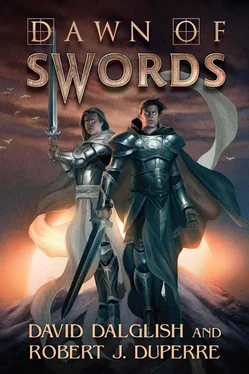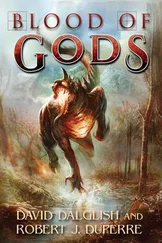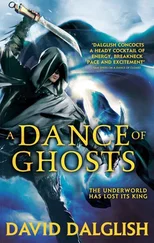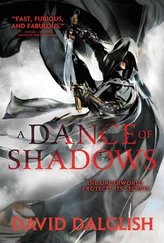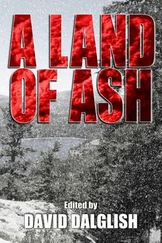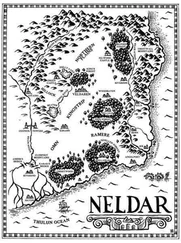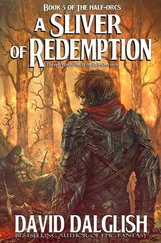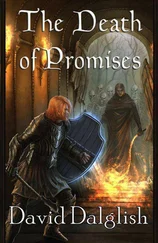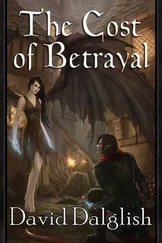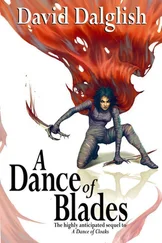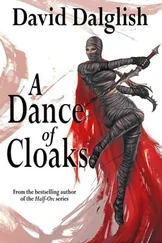David Dalglish - Dawn of Swords
Здесь есть возможность читать онлайн «David Dalglish - Dawn of Swords» весь текст электронной книги совершенно бесплатно (целиком полную версию без сокращений). В некоторых случаях можно слушать аудио, скачать через торрент в формате fb2 и присутствует краткое содержание. Жанр: Фэнтези, на английском языке. Описание произведения, (предисловие) а так же отзывы посетителей доступны на портале библиотеки ЛибКат.
- Название:Dawn of Swords
- Автор:
- Жанр:
- Год:неизвестен
- ISBN:нет данных
- Рейтинг книги:3 / 5. Голосов: 1
-
Избранное:Добавить в избранное
- Отзывы:
-
Ваша оценка:
- 60
- 1
- 2
- 3
- 4
- 5
Dawn of Swords: краткое содержание, описание и аннотация
Предлагаем к чтению аннотацию, описание, краткое содержание или предисловие (зависит от того, что написал сам автор книги «Dawn of Swords»). Если вы не нашли необходимую информацию о книге — напишите в комментариях, мы постараемся отыскать её.
Dawn of Swords — читать онлайн бесплатно полную книгу (весь текст) целиком
Ниже представлен текст книги, разбитый по страницам. Система сохранения места последней прочитанной страницы, позволяет с удобством читать онлайн бесплатно книгу «Dawn of Swords», без необходимости каждый раз заново искать на чём Вы остановились. Поставьте закладку, и сможете в любой момент перейти на страницу, на которой закончили чтение.
Интервал:
Закладка:
It was energy Jacob could have used at the moment. Suddenly his arms felt too heavy, his knees too weak. He slumped his shoulders, turned around, and pulled open the door to his cabin. Stepping inside, he found the embers of a recent fire, glowing in the inglenook. Above it, resting on an iron rack, was a steaming pot. He dipped a finger inside. Roland had left a meal for him-rabbit from the smell of it. His stomach cramped as he licked his finger; then he grabbed a wooden bowl from the niche above the inglenook and ladled himself a helping.
The soup was warm and spiced with lemongrass and sage, which made it taste a tad sour. He gulped down mouthful after mouthful, feeling his hunger pangs decrease with each swallow. Making his way to the window, he pushed open the shutters with his free hand, allowing the breeze to tickle his flesh. The stifling heat from the embers was slowly whisked away.
When he finished eating, he went to his desk on the far side of the room. The desk had been a gift from Norman Astencroft, the lone carpenter to take up residence in Safeway. Norman wasn’t particularly skilled, and the ash desk wasn’t particularly well made, but it served its purpose. That was all Jacob could really ask for.
Setting aside his bowl, he reached beneath the desk and pulled out a leather-bound book. He placed it on the flat surface, wiped dust from the cover, and undid the iron clasp. The food might have settled his stomach, but it had done nothing to stifle his exhaustion from riding three days straight with little sleep. Nor did it calm the dissonant thoughts running through his mind. He had not yet decided what he would tell Ashhur about the events at the temple. His hand shook as he took out a folded piece of paper from the inner pocket of his tunic, flipped open the cover of the book, and turned until he reached a blank page.
He unfolded the paper and began inscribing the words written on it. With each letter he formed, he sensed his fatigue-and his anger-lessening. It was as if documenting his adventures and discoveries in his journal was setting his soul afire. Other than serving his god, this was what he lived for: unlocking the mysteries of the world, slowly assembling the building blocks of life in Dezrel, one word at a time.
His earliest entries had originally been written on the huge leaves of the barrow elms that grew atop Mount Ire in the northwest, using excretions from nightworms as his ink. It wasn’t until his twenty-fourth year, when Ashhur showed his people how ink could be made by mixing iron salts with gallnut tannins, that Isabel DuTaureau, the matriarch of House DuTaureau of Mordeina, had had this particular tome created for him.
The journal was filled with oddities-descriptions of plants and animals beyond number. He chronicled humanity’s progress, from their early days as youths under the watch of the Wardens to the time when those in the east began to earn their independence. The chronicles also served as a comparison of the burgeoning cultures in the east and west, both their similarities and their vast differences.
Though magic was sparse within Paradise, used only to heal the sick and urge crops to grow, the study of it was what interested Jacob the most. Page after page of his journal was scrawled with psalms, ingredients, runes, powerful words, and the laws of tribute. One could open the book to any random page and discover something wonderful: practical magic, such as how to conjure food from topaz or create a bubbling stream with onyx dust; earth magic, derived from the elves, about how to divine power from the molecules in the air itself to form balls of fire, shards of ice, or even cause plant life to obey commands; astral magic on how to bend time and space to travel between two points in an instant; psychic magic, explaining how to use the power of one’s mind to manipulate physical objects on a whim or commune with others over great distances, using select totems, such as sea-worn copper or dragonglass. There were also vast sections on metallurgy, botany, chemistry, astrology, and what he had learned about the inner workings of the human mind. Rarest were the segments dealing with blood magic, an ancient form of conjuring that existed only in the legends told to him by the elves.
According to those legends, two millennia ago there were three demon kings-Darakken, the thunder lord; Velixar, the beast of a thousand faces; and Sluggoth, the slithering famine. When they ascended from the underworld, they brought terror to the elves. A war lasting a hundred years ensued, until Celestia, apparently upset that these hellbeasts were laying waste to her creations, sent the demons and their minions back to the underworld and locked it up tight. The demons were said to have possessed great mystical abilities. Through their words and strength of will they could control the dead, inflict insanity upon all who gazed on them, and rip apart a living body and reassemble it as they pleased. Their story fascinated Jacob. He wanted more than anything to discover the truths hidden within the legends, to inscribe the words of these beasts’ ancient magic in the pages of his tome. Sadly, barring a few obscure carvings in the crypts of Dezerea, there was no hard evidence that the demon kings had been anything but bedtime stories. The section on them in his journal was maddeningly sparse.
His current work for the night dealt with medicinal herbs. Living in the west meant a life free from disease and physical maladies, so it intrigued him how those in the east-and in Haven-got through each day with all the potential dangers surrounding them. He had catalogued all the different herbs and their uses, both medicinal and recreational, from poppy to crimleaf to the silia fungus. During his visit to the Temple of the Flesh, he’d spoken with the priestess Aprodia, who had told him that by sucking the milk from the large seeds of nectarines, her people avoided the Wasting that inflicted many throughout the east. That information might not have much practical use in Ashhur’s Paradise, but Jacob was nothing if not fastidious, so into the book it went.
He was in the middle of writing his last word of the evening when a board creaked behind him. The quill halted mid-stroke, and he cocked his head. All was quiet but for the whistling of the wind through the open window. Just then, something grabbed the back of his hair, forcing his head back. Sharp steel pressed against his throat. He reached for the skinning knife he kept tucked into his belt, but it was no longer there.
“Looking for something?” asked a low, mocking voice.
“It seems I have misplaced my knife,” Jacob replied, calm as could be. “You wouldn’t happen to have it, would you?”
“I might.”
“Please be careful. The blade is quite sharp.”
The voice snickered, and the knife was pulled away from his throat. The hand dropped from his forehead, silken fingers tracing a sinuous line down his cheek.
“So many apologies, kind sir,” the voice said, now sounding high-pitched and childish. “I knew not.”
Jacob stood from his chair and turned around slowly. The corners of his mouth rose into a sad grin when he saw the elf girl standing there.
“Brienna, one of these days you might actually hurt me. I may not age, but I’m not indestructible, you know.”
“I wouldn’t have broken the skin. Where’s your sense of humor?”
He shook his head. “It seems to have abandoned me this night. Forgive my lack of charm. You took me by surprise, Bree. Shouldn’t you be at the homestead, preparing for the engagement?”
“I reckon my sister could do without my company for a few nights. There are only so many flower arrangements a girl can make, and to be honest, I have no desire to spend time in Dezerea. Our cousins there are so…stuffy and staid.” She clucked her tongue. “Now I ask, would I not be of more use to you here?”
Читать дальшеИнтервал:
Закладка:
Похожие книги на «Dawn of Swords»
Представляем Вашему вниманию похожие книги на «Dawn of Swords» списком для выбора. Мы отобрали схожую по названию и смыслу литературу в надежде предоставить читателям больше вариантов отыскать новые, интересные, ещё непрочитанные произведения.
Обсуждение, отзывы о книге «Dawn of Swords» и просто собственные мнения читателей. Оставьте ваши комментарии, напишите, что Вы думаете о произведении, его смысле или главных героях. Укажите что конкретно понравилось, а что нет, и почему Вы так считаете.
